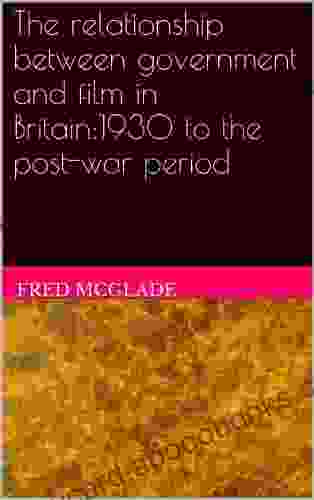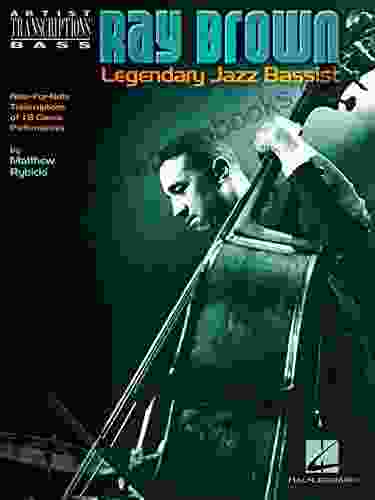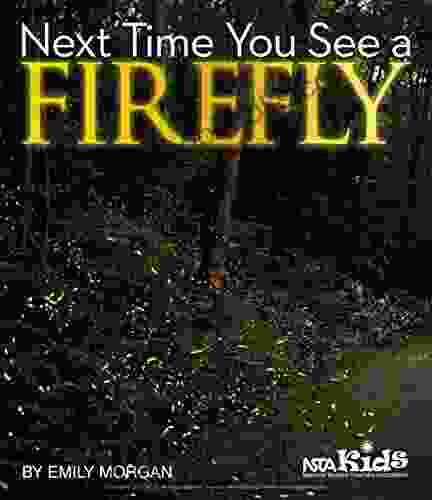The Relationship Between Government and Film in Britain: A Tapestry of Influence, Support, and Control

5 out of 5
| Language | : | English |
| File size | : | 662 KB |
| Text-to-Speech | : | Enabled |
| Enhanced typesetting | : | Enabled |
| Word Wise | : | Enabled |
| Print length | : | 32 pages |
| Lending | : | Enabled |
| Screen Reader | : | Supported |
The world of cinema, with its captivating stories and evocative imagery, has long been intertwined with the machinations of government. This is particularly true in Britain, where the relationship between government and film has been marked by a complex interplay of censorship, funding, ideological shaping, and cultural diplomacy.
Censorship: Shaping the Cinematic Landscape
The British government has played a significant role in shaping the cinematic landscape through censorship. The Cinematograph Films Act of 1909 established the British Board of Film Classification (BBFC),a body tasked with examining and classifying films for exhibition in the United Kingdom. This act empowered the BBFC to ban or cut films deemed morally or politically objectionable.
The BBFC's criteria have evolved over time, reflecting changing social norms and political landscapes. In the early 20th century, the board banned films depicting violence, nudity, and blasphemy. During the Cold War, the BBFC acted as a gatekeeper against communist propaganda. However, as society became more liberal, the BBFC's censorship practices gradually relaxed.
Government Funding: Nurturing Creativity and Industry Growth
Beyond censorship, the British government has also provided substantial financial support to the film industry. In 1932, the British Film Institute (BFI) was established to promote the production and distribution of British films. The BFI received government funding to provide grants and loans to filmmakers, establish film archives, and conduct research on the film industry.
Government funding has played a pivotal role in the development of the British film industry. It has enabled filmmakers to produce ambitious and innovative films, nurture new talent, and compete on the global stage. Without government support, many iconic British films, from "The Red Shoes" to "Trainspotting," might never have been realized.
Ideological Shaping: Film as a Tool of State
The British government has also used film as a tool to shape public opinion and promote its own ideological agenda. During World War II, the government produced propaganda films designed to boost morale and support the war effort. These films portrayed the enemy as evil and glorified the heroism of British soldiers.
In the postwar era, the government continued to use film to promote its domestic and foreign policies. Films such as "Passport to Pimlico" (1949) and "A Night to Remember" (1958) reflected the government's commitment to social stability and national unity.
Cultural Diplomacy: Soft Power through Cinema
In recent years, the British government has increasingly recognized the power of film as a tool of cultural diplomacy. The British Council, a government-funded organization, promotes British culture and values around the world through film screenings, festivals, and educational programs.
Through cultural diplomacy, British films have become ambassadors for the country's values, traditions, and creativity. They have played a role in fostering understanding between different cultures, promoting tourism, and enhancing Britain's reputation on the world stage.
The relationship between government and film in Britain is a complex and ever-evolving one. The government has shaped the film industry through censorship, funding, ideological shaping, and cultural diplomacy. In turn, the film industry has reflected and influenced British society, culture, and politics.
This symbiotic relationship has resulted in a rich and diverse cinematic landscape that is both entertaining and thought-provoking. British films have entertained audiences worldwide, promoted understanding, and shaped the national identity. As the world continues to evolve, so too will the relationship between government and film in Britain, ensuring that the silver screen remains a vital part of the country's cultural fabric.
5 out of 5
| Language | : | English |
| File size | : | 662 KB |
| Text-to-Speech | : | Enabled |
| Enhanced typesetting | : | Enabled |
| Word Wise | : | Enabled |
| Print length | : | 32 pages |
| Lending | : | Enabled |
| Screen Reader | : | Supported |
Do you want to contribute by writing guest posts on this blog?
Please contact us and send us a resume of previous articles that you have written.
 Book
Book Novel
Novel Page
Page Chapter
Chapter Text
Text Story
Story Genre
Genre Reader
Reader Library
Library Paperback
Paperback E-book
E-book Magazine
Magazine Newspaper
Newspaper Paragraph
Paragraph Sentence
Sentence Bookmark
Bookmark Shelf
Shelf Glossary
Glossary Bibliography
Bibliography Foreword
Foreword Preface
Preface Synopsis
Synopsis Annotation
Annotation Footnote
Footnote Manuscript
Manuscript Scroll
Scroll Codex
Codex Tome
Tome Bestseller
Bestseller Classics
Classics Library card
Library card Narrative
Narrative Biography
Biography Autobiography
Autobiography Memoir
Memoir Reference
Reference Encyclopedia
Encyclopedia Laurence Parent
Laurence Parent Amer Anwar
Amer Anwar Hannah Vandegrift Eldridge
Hannah Vandegrift Eldridge Andrea Bocelli
Andrea Bocelli Madeleine Westerhout
Madeleine Westerhout Marilyn Booth
Marilyn Booth Greta R Krippner
Greta R Krippner Michael Koryta
Michael Koryta Amy Spencer
Amy Spencer Henry Adams
Henry Adams Eric J Wittenberg
Eric J Wittenberg Laurent Tailhade
Laurent Tailhade Susan Chenelle
Susan Chenelle Maria Rashid
Maria Rashid Richard Wilhelm
Richard Wilhelm Juan Reyes
Juan Reyes Bart Plantenga
Bart Plantenga Amy King
Amy King Sarah Smiley
Sarah Smiley Leslie S Klinger
Leslie S Klinger
Light bulbAdvertise smarter! Our strategic ad space ensures maximum exposure. Reserve your spot today!

 Jayson PowellOstrich Fun Facts: A Wild Adventure into the World of the World's Largest...
Jayson PowellOstrich Fun Facts: A Wild Adventure into the World of the World's Largest... Tyler NelsonFollow ·10.5k
Tyler NelsonFollow ·10.5k Jamal BlairFollow ·15.8k
Jamal BlairFollow ·15.8k Cooper BellFollow ·16.3k
Cooper BellFollow ·16.3k Roberto BolañoFollow ·8.6k
Roberto BolañoFollow ·8.6k Junot DíazFollow ·7.3k
Junot DíazFollow ·7.3k Alex FosterFollow ·11.9k
Alex FosterFollow ·11.9k Carlos FuentesFollow ·16.8k
Carlos FuentesFollow ·16.8k Boris PasternakFollow ·11.8k
Boris PasternakFollow ·11.8k

 Roald Dahl
Roald DahlImmerse Yourself in a Mesmerizing Tapestry of Creativity:...
Prepare to be captivated by "Spectra," an...

 Clarence Brooks
Clarence BrooksUnleash Your Inner Taylor with Red Piano Vocal Guitar:...
Embrace the Red Era...

 Jeffrey Hayes
Jeffrey HayesUnlock Your Child's Academic Potential: A Comprehensive...
In today's rapidly changing...

 William Golding
William GoldingBrave Elizabeth: A Captivating Tale of Resilience and...
Immerse Yourself in a Riveting Historical...

 Curtis Stewart
Curtis StewartUnveiling the Heartfelt Melodies of Taylor Swift: A...
Step into the enchanting world of Taylor...
5 out of 5
| Language | : | English |
| File size | : | 662 KB |
| Text-to-Speech | : | Enabled |
| Enhanced typesetting | : | Enabled |
| Word Wise | : | Enabled |
| Print length | : | 32 pages |
| Lending | : | Enabled |
| Screen Reader | : | Supported |












